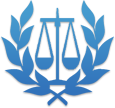UPDATING OF THE UNIVERSAL CHARTER OF THE JUDGE
Updated in Santiago de Chile on November 14th, 2017
Between 1993 and 1995 the different regional components of the IAJ adopted charters on the statute of judges:
– the “Judges’ Charter in Europe” adopted by the European Association of Judges in 1993 (Link)
– the “Judges’ Charter in Ibero-America” (Estatuto del Juez iberoamericano) adopted in 1995 by the Ibero-American Group of the IAJ (Link)
– the “Judges’ Charter in Africa” adopted in 1995 by the African Group of the IAJ (Link)
Some years later, in 1999, after a long work of reflexion, the Central Council of the IAJ, during its meeting in Taiwan, adopted a universal Charter of the Judge.
Beside such IAJ internal texts, a number of internationally recognised standards have been adopted. Their aim is to provide, in the interest not only of judges and prosecutors, but also of justiciables, a set of rights and duties, which may allow to preserve the independence and impartiality of the judiciary.
This is the case for the following documents:
– some texts adopted within the UN since 1966, more specifically the basic principles on the independence of the judiciary, adopted in 1985; (Link)
– Recommendation 94/12 of the Committee of ministers of the Council of Europe, elaborated in 1994 and updated in 2010 (Recommendation CM/Rec(2010)12 on judges: independence, efficiency and responsibilities); (Link)
– European Charter on the statute for judges, elaborated by the Council of Europe in 1998; (Link) (Link 2)
– the various opinions of the Consultative Council of European Judges since 2001 and particularly the “Magna carta of European judges,” which is a compilation of the above mentioned opinions, drafted in 2010; (Link)
– the Bangalore principles on judicial conduct (2002) and the resolution 2006/23 of the Economic and Social Council of the UN; (Link) (Link 2)
– the report of the Venice Commission on the independence of the judicial system (study n. 494/2008); (Link) (Link 2)
– the Kiev recommendations on the independence of the judiciary in Eastern Europe, adopted in 2010; (Link)
– the opinions of the European Network of Councils of Justice. (Link)
Other associations, such as the Commonwealth Association of Judges, have adopted as well standards aiming at assuring the independence of the judiciary (in particular the “Victoria Falls Declaration” in 1994, or the statute of Commonwealth judges in 2013).
As of 1999, after the adoption of the Universal Charter in Taiwan, a work on the minimum standards on judicial independence has been done by the IAJ.
This was the case, in particular, for the First Study Commission, which examined after the year 2000 following subjects: (Link)
– The relationship between effective management of the courts and the delivery of justice by independent judges – 2015
– Media, including social media, in the courtroom and their effects on judicial independence and the proper administration of justice – 2014
– The Independence of Judges as Protectors of International Human Rights Law – 2013
– Judicial Specialisation – 2012
– The physical, structural and economic conditions of judicial independence – 2011
– Criteria to be considered when assessing the independence of the judiciary (follow up) – 2010
– Criteria to be considered when assessing the independence of the judiciary – 2009
– The relationship between the executive and the judiciary in a democratic society – 2008
– Access to justice – 2007
– Consistency of appointment and assessment of judges with judicial independence – 2006
– Economics, jurisdiction and independence – 2005
– Rules for the ethical conduct of judges, their application and observance – 2004
– High Council of Justice or analogous bodies in judicial systems – 2003
– The appointment and the role of presidents of courts – 2001
– The independence of the individual judge within his own organization – 2000
Beside this, the various Regional Groups and the Central Council of the IAJ adopted a number of resolutions that, by referring to such standards, have little by little set up a compilation of rules which are specific to our organisation.
During the meeting in Foz do Iguaçu in 2014 the Central Council of the IAJ approved the proposal of the Presidency Committee to update the Charter adopted in Taiwan in 1999.
During the Barcelona meeting a working group was set up, with the task to prepare a draft for a new Charter.
It was composed of
– Christophe REGNARD, President of the IAJ (France), President of the working group
– Giacomo OBERTO, Secretary-General of the IAJ (Italy)
– Janja ROBLEK (Slovenia)
– Julie DUTIL (Canada)
– Allyson DUNCAN (USA)
– Walter BARONE (Brazil)
– Mario MORALES (Puerto Rico)
– Marie Odile THIAKANE (Senegal)
– Scheik KONE (Mali)
To this work was also associated Günter WORATSCH, Honorary President of the IAJ (Austria), in his quality of President of the Council of Honorary Presidents.
The draft charter was discussed:
– within the working group during the meeting in Mexico City in October 2016,
– during the springtime Regional Groups meetings in April and May 2017
A discussion and a validation of the proposals of the working group was done in June 2017 by the Presidency Committee.
The formal adoption occurred during the annual meeting of the Central Council on November 14th, 2017 in Santiago de Chile.

